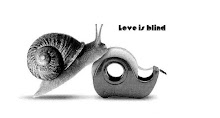
OUTLINE!
1. Introduction about how Jew people were treated in the time the film was settled.
2. Summary of the film.
3. How the otherness and empathy is reflected in Shylock.
4. Opinions about the film.
5. Conclusions about the otherness’ topic that still is a current issue in our society.
The following paper will discuss how Jew people were treated everywhere they lived in order to contextualize the latter arguments that are going to be presented in the text. The film that I saw was The Merchant of Venice. The following arguments of this paper are going to be narrated through the character of Shylock, which is one of the main characters of the film.
When the film starts the first shot that is shown is where a text appears with the following passage: “The Jews were forbidden to own property. So they practiced usury, the lending of money at interest. This was against Christian law”. This opening immediately show us that the only way of living that Jews had was living from lending money because they cannot do anything else but this. So they were forced because of social restrictions and force law to live from the interests obtained from this lending. This helps us to contextualize our understanding of the way of living of Jews in order to not fall into prejudices against Jews.
Then, after this introduction, the films shows the plot which is going to be the developed through different actions within the film. Here, the main struggle is revealed: Bassanio needs money for his conquest because he is in bankruptcy. He needs to travel to another place with the purpose of marrying a lady who owns a huge fortune. So Bassanio decides to borrow money to his best friend Antonio, who is an important Merchant of Venice, but the problem is that Bassanio needs a large amount of money, reason that leads to Antonio to borrow this amount to Shylock, the Venice’s Jewish moneylender. In exchange for the loan Shylock asks for one pound of Antonio’s flesh in case he can’t pay back his debt.
After many events happen, Antonio’s deadline for paying his debt to Shylock came but he can’t pay it so Shylock decides to levy that was agreed. So the case is taken into a court where is decided what Antonio and Shylock must do to solve their contract.
After having summarized the film I am going to discuss how otherness and empathy is reflected in the character of Shylock. This character was always basing his actions according to his beliefs. Shylock represented himself as a resigned person who is almost accustomed to be bad treated by everyone just for being a Jew. In fact, in the film he says: “that’s how our people are used to live, resigned to be badly treated by you, Christians”. In this way, he is declaring his condition but not accepting it. These words implied his odiousness to the way Christians treated Jews.
Shylock was surprised when Antonio asked for his monetary help, he argued Antonio, who used to call him a dog, that: “how a dog can be owner of money? How was it possible that a noble Christian was asking for money to a wicked Jewish?” with this speech Shylock tried to make Antonio understand that now he was considering a person who was not worthy of compassion, according to his Christian beliefs.
When Antonio was not able to pay his debt, Shylock decided to fulfill his part of the contract and he to protested for was he deserved; a pound of Antonio’s flesh. The arguments that Shylock used were that the way that Christians treated Jews taught him to treat Christians, an eye for an eye. If Christians showed him what mercy was, he was going to be merciful with them in the same way that they were.
Through these arguments we can see that Shylock supported his actions in the fact that Christians had their own ways of behaving and thinking, according to their beliefs and that was commonly accepted by everyone. So, in the same way, the way of thinking and behaving of Shylock should be accepted and tolerated by everyone in Venice.
I really enjoyed the film because it made me see the Jews point of view. Unfortunately, it is very common to associate Jews with moneylenders because our assumptions and prejudices about them. But this film taught me that if they were living of the lending, it was because they were forced to do so, they couldn’t do anything else just because they were Jewish. I know that maybe this was not the purpose of the movie but as there are different ways of seeing, there are also many ways of interpreting films.
As a way of concluding this paper I would like to mention that Shylock was always reminding others how they behave and the way others think in order to support his acts reflecting himself in the other. In other words, Shylock pointed out the bad things in others, which was very unpleasant for many people. This is important because many times we do not accept the bad things in ourselves, we tend to think that we are almost perfect but, when someone tells us something against what we believe we tend to criticize that person without accepting the other’s point of view. We should accept what the other thinks about us in order to improve and grow as a person. So, if you and I are two of a kind, why don’t we accept the bad and good things about us?












